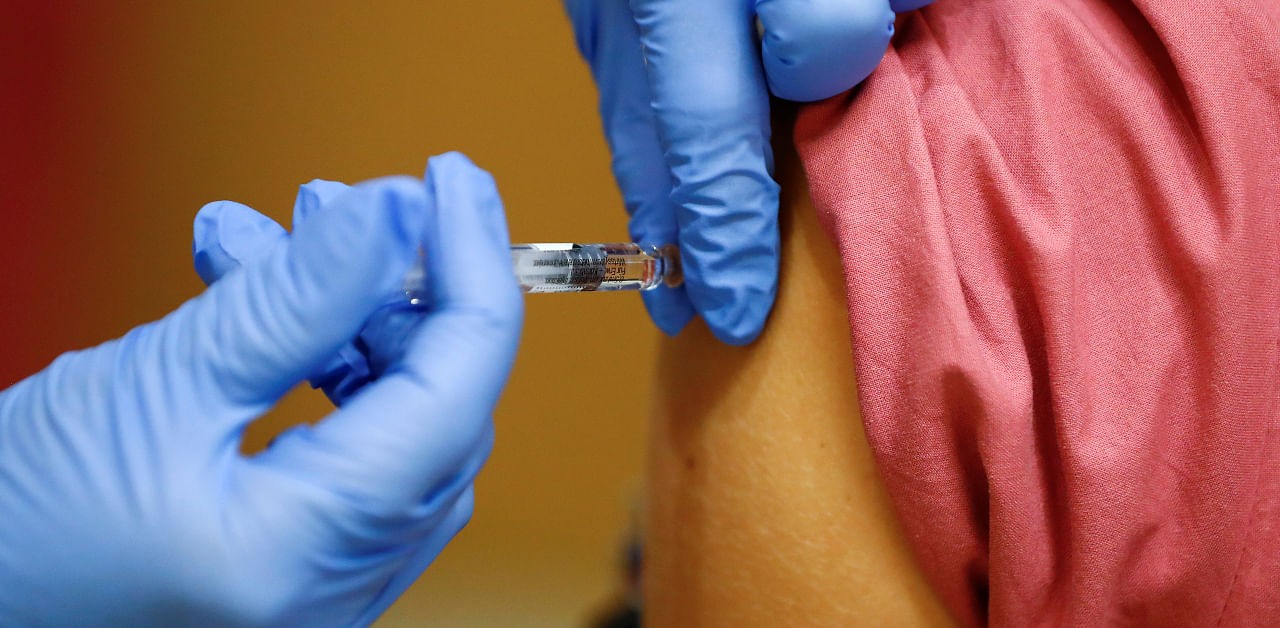
Indians are the keenest on getting vaccinated whenever a Covid-19 vaccine is available, even as people in 10 out of 15 countries showed a growing reluctance about getting vaccinated, according to a global survey.
Read | India's Covid-19 vaccine Covaxin could be launched as early as February 2021, says ICMR scientist
In the World Economic Forum/Ipsos survey of 18,526 adults from 15 countries, 73 per cent said they would get a Covid-19 vaccine if available, down from 77 per cent in August.
While vaccination intent has remained unchanged at 87 per cent in India since August, it has declined in 10 of the 15 countries surveyed, most of all in China, Australia, Spain, and Brazil.
Globally, the two main reasons for not wanting to get a Covid-19 vaccine are concerns about side effects (cited by 34 per cent) and concerns about clinical trials moving too fast (cited by another 33 per cent). In India also, 34 per cent respondents said they are worried about side effects, while 16 per cent are concerned about fast-moving trials.
Also Read | Should we be paid to get Covid-19 shots?
Besides, one in ten persons globally said they are against vaccines in general (19 per cent in India), while another 10 per cent said they don't think a vaccine will be effective (14 per cent in India), and 8 per cent cited a low risk of getting Covid-19 (14 per cent in India), as per the survey.
The World Economic Forum (WEF) said the latest survey has shown a growing reluctance to receive a vaccine, despite progress made by numerous pharmaceutical companies working on vaccine trials and international organisations like the World Health Organization (WHO), Gavi and CEPI working to ensure any future solution is available for those most in need.
Arnaud Bernaert, Head of Shaping the Future of Health and Healthcare at the WEF, said, "This drop in vaccine confidence is a remarkable and sad trend as we edge closer to a possible vaccine roll-out."
"The numbers are significant enough to compromise the effectiveness of a COVID-19 vaccine to manage the disease and to see an end to the cycle of new lockdowns and restrictions. It is critical that governments and the private sector come together to build trust in the next steps. It's important to know that when a vaccine is ready, it will make a difference," Bernaert added.
The survey also asked the respondents how soon after a vaccine becomes available would they get one.
Nearly half of the adults globally said they would get vaccinated within three months after the Covid-19 vaccine is available to all (54 per cent in India).
Globally, 72 per cent said they would get vaccinated within a year (82 per cent in India).
The WHO had called 'public hesitancy towards vaccination' as one of the top-10 threats to global health in 2019, affecting not only public health but businesses and economies also.
The survey was conducted by leading market research company Ipsos from October 8-13, 2020, with a sample of 18,526 adults in the US, Canada, South Africa, Australia, Brazil, China, France, Germany, India, Italy, Japan, Mexico, South Korea, Spain, and the UK.
The survey also put Indians as being the second most optimistic about availability of a Covid-19 vaccine soon -- 34 per cent expecting it within three months and 72 per cent within six months. China topped the chart with 37 per cent expecting a vaccine in three months and 75 per cent in six months.
Globally, 16 per cent expect the first vaccine for general use in three months and 45 per cent in six months.
More than 4.8 crore people have tested positive for the virus so far globally, while more than 12 lakh have died.
India's COVID-19 caseload has crossed past 84 lakh, while nearly 1.25 lakh have died.